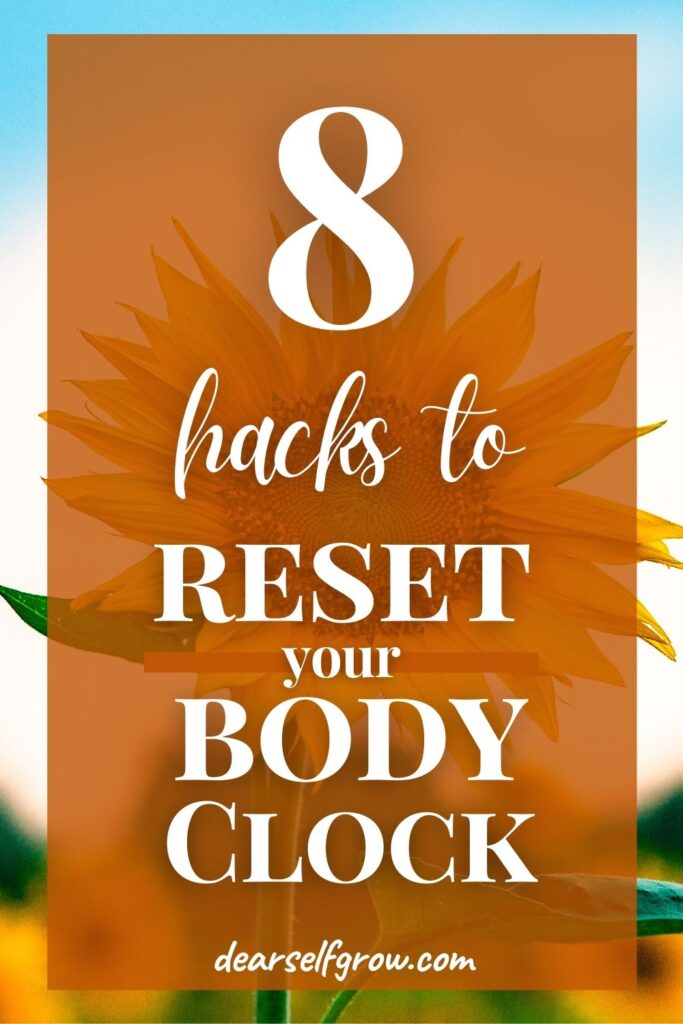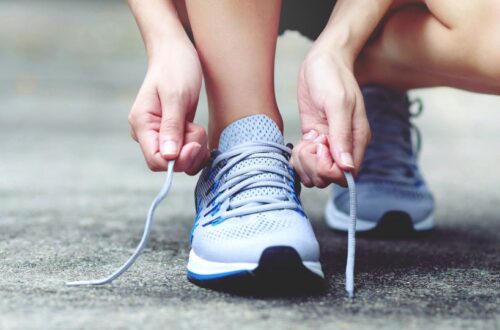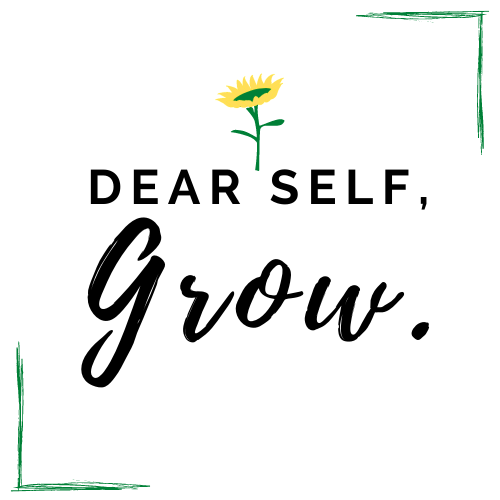
How to Reset Body Clock: Follow These 8 Tested Methods.
Are you one of those people who keep on trying to wake up early to start the day right? Or do you keep on planning to be productive but can’t because you feel tired? Maybe it’s because you do lack sleep. Or your circadian rhythm is not in sync with your daily schedule. This can still be addressed by knowing how to reset the body clock.
A healthy body clock is one of the most important habits to develop to have a healthier and more productive life. With a well functioning circadian rhythm, our body system is in sync with our daily activities. This means that it is active when we need it to be, and it is relaxed when we are about to sleep.
Despite knowing how important a healthy body clock is, we still keep messing it up. We still do things that we know stops us from sleeping and waking up on time.
We know that prolonged screen time can make us awake the whole night.
We also know that starting a TV series a few hours before sleep can make us binge it until the next day.
We (hi to my fellow low alcohol tolerant) know that partying the whole night can make us sleep the entire day after.
We may be doing these intentionally or not. It’s okay. The important thing is we are committing ourselves NOW to our growth and our health. And we are now learning how to reset our body clock.
You may want to read this: 5 Tips on How to Start Your Self Improvement Journey.
Know More About Circadian Rhythm and Internal Body Clock
First, let’s learn more about circadian rhythm and body clock, and how they affect us. There are some of us who need a slap in the face to learn how important this is.
Our body clock (or biological clock to be exact) is our internal clock that times our bodily functions and makes sure that they are on schedule. They are made of proteins that interact with cells throughout our bodies. And our body clock regulates our circadian rhythm, which is a 24 cycle that is responsible for the timing of sleep, digestion, restoration, the release of hormones, etc.
A disrupted circadian rhythm can greatly affect our health. It is linked to an increased risk of diabetes, heart failure, anxiety, depression, and sleep disorders. In addition, it also affects our awakeness and alertness, thus affecting our productivity and mood.
Our circadian rhythm may be regulated by our biological clock, but it can be also affected by the signals in our environment. So, we can still reset our body clock.

How to Reset Body Clock
In our age, it is pretty common to have a messed up body clock. Our generation seems to complain about being tired all the time. But, we know that it’s because of our inconsistent sleep pattern. We take naps now and then, and keep awake at night facing our computers or phones.
We all know that our actions can be the reason, right?
Anyway, the good thing is that we can do something about this by fixing our body clock. And here are 8 steps you can take to surely reset your body clock.
1. Know your circadian rhythm
Knowing your circadian rhythm is important so you will be aware when you are most awake and asleep in your 24-hour cycle. If you are satisfied with yours, you can take advantage of this. You may schedule your most important tasks on your peak, and sleep on the bottom. Otherwise, you can adjust your circadian rhythm so that it will coincide with your work schedule.
There are more effective and accurate ways to know your circadian rhythm. Researchers can just get a blood sample and then analyze your protein. A sleep specialist can also help you. But these can be expensive or not available near you.
Another way is to observe yourself for a day. Without alarms, what time do you wake up and what time do you sleep? At what time do you feel most active? Record your observations. You may also take note of your temperature. You are at your peak on your hottest.
There are mobile apps where you can record what you do the entire day. You can also manually do this using a journal.
2. Plan a consistent sleeping schedule.
Now that you know your circadian rhythm, you can plan a schedule to optimize your day. And one way to do this is to establish a routine.
A routine can help your body adapt and get used to it. Plan what time you want to sleep and wake up. And then gradually move your current schedule to this. Maybe 15-30 minutes a day.
For example, you sleep from 3 am to 12 pm. And you want to change it to 12 am to 7 am. You may gradually change your sleeping schedule by sleeping 15 minutes earlier than the previous day until you reach your goal. So with this example, it will take you 12 days.
If you have inconsistent sleep patterns, it is not easy and quick to reset your body clock. You have to gradually shift your circadian rhythm to your desired time. Take note of the word gradual. If you do it drastically, it will just stress your body. And there’s a big chance you will just fail.
3. Pull an all-nighter.
If you are in an immediate need to fix your body clock for various reasons, you probably saw a tip that says you should pull an all-nighter.
Yes, this can work. What this does is that it makes you fall asleep immediately on your desired sleeping schedule. An inconsistent sleeping pattern makes sleeping early difficult. But, when you’re so sleepy then this might work.
However, this works temporarily because your body clock is not well adjusted. This might work if you pair this with a good evening and morning routine that signals your body that it’s time to sleep and be active, respectively.
4. Adjust the lighting accordingly.
Our circadian rhythm is mainly influenced by our genes. But, as mentioned it can also be affected by the signals in the environment, and the biggest factor is daylight. Daylight turns on and off the genes responsible for our body clock.
Before, our ancestors relied only on the sun for light. So, they woke up when the sun rose, and slept when the sun set. With this, exposure to sunlight helped set their circadian rhythm, and we can definitely use it.
When you feel tired after waking up, open your windows so that sunlight can get in your room. This signals your body that it is time to work. Artificial lights can also work. So, brighten your lights when you wake up, and dimmer it when you are going to sleep.
Fun tip: Leave your electronics at home and then go camping! You will be directly exposed to sunlight, and it will be so dark when you sleep.
5. Watch what and when you eat.
When you eat near bedtime, it may disrupt your sleep because your body would need to digest the food you just ate. So, it is advisable to eat hours before sleeping.
We know that what we eat can affect our health. And it can also affect our sleep especially when we eat heavy, greasy, or spicy meals during dinner. To ensure a good sleep, eat lighter meals or snacks, and avoid caffeine.
Our body clock also regulates our digestion. And digestion and sleeping is not a good pair. Sleeping is for the restoration and healing of your cells and tissues. If you make your body digest during sleep, you are just overworking it. Give time for your body to have a good rest.
6. Exercise daily.
Working out greatly impacts our overall health! The quality of our sleep is no exception to this.
A quick workout is enough to raise your body temperature to make you active. Just sweat it out! To take advantage of this, workout early in the morning to really wake you up. To make it more fun, you may walk or jog outside! Sunlight plus workout is a terrific way to start a good day.
Of course, starting a good day is only possible when you had a good sleep. Working out can physically tire your muscles after a long day. At the same time. it can relax you because of the hormones released during exercise. These two combined make falling asleep super easy.
Note: Just make sure not to do cardio exercise near bedtime because it might energize you. You can do yoga or other relaxing exercises.
You may want to read this: Lack of Motivation to Exercise: How to Beat it.
7. Practice sleep hygiene.
Sleep hygiene is basically a set of habits that makes you fall asleep easily and longer. It makes you sleep well, which is important for your physical and mental health.
To ensure a good night’s sleep, you have to make sure that your bedroom is suitable for sleeping. Check the light, temperature, and noise. It is important that electronics are kept away so that they won’t distract your sleep.
You also have to check if you are ready to sleep. Make yourself relax by reading or meditating. If you are not sleepy, don’t force yourself to fall asleep. It will just frustrate and wake you up more.
A pre-bed routine is also good to train your brain that when you are doing this routine, it means you are about to sleep.
8. Talk with your doctor.
It is normal to have sleeping problems. This can be due to different reasons such as stress or maybe our inconsistent schedule. Fortunately, we can fix these problems when we change our habits and improve our lifestyle.
But, when you notice that whatever you do, the problem still persists, go to your doctor. This may be a sleeping disorder. Or something that can be a health-related problem.

Fix your body clock to be healthier and more productive!
With an in-sync body clock, we can do so much better. Imagine the quality of our day and even our life. By just fixing our body clock, we can improve ourselves a lot more. Even by just starting the day right can make so much difference.
By having a good sleep, and waking up on time, we are starting our day right. We are energized to do what we want to achieve. We have that brighter mood to socialize with others. Also, we feel accomplished and we are motivated to do it all over again.
But, this does not end in resetting our body clock. This is just the first step. The difficult step is to be consistent. The good thing is, when our body gets used to the consistency, it will automatically remember it and it can become second nature to us.
Now that we know that our sleep affects our health and productivity, we should not keep it for granted. In fact, maintaining a healthy sleeping habit can cause a good ripple effect in our lives.
Share what have you done so far to reset your body clock in the comment section! If this blog motivated you, it would be great to share this with others so that we can all improve together.
Always rooting for your growth,
Meredith Blaise ♡
Newsletter
Get weekly tips, guides, or inspirations for your growth every week!
Thank you!
You have successfully joined our subscriber list.


You May Also Like

7 Fitness Habits for a Healthier Life.
06/14/2022
Self-limiting beliefs: How to Overcome them.
04/11/2022

17 Comments
Nat
Such great advice. Getting on a solid sleep schedule is something I’ve always struggled with. It’s definitely a work in progress for me!
Meredith Grace
I am so glad you are doing something about and your progress! Keep it up 🙂
Joe @ Mini Riches
These are some great tips. I’m not an early bird at all, and I’m convinced nothing will ever change that at this point in my life! Lol!
Meredith Grace
There are night owls also haha! It’s okay as long as you feel healthy with that lifestyle 🙂 But they say that we will wake up earlier as we age so…
Ruth
This is so interesting. I hate getting up early myself but my body clock automatically wakes me up at 7am now (even on my days off because of work). I used to be a night owl and stay up till 3am before I started working 😂
Meredith Grace
Wow, I’m kinda jealous because I think you did this with less effort 😭
Cosmicwaybyamethyst
Its amazing how you can control your body through a healthy rutine. Got some notes done to put into practice. Love your blog
Meredith Grace
Thank you! Our bodies are amazing that they can adapt to almost anything 🙂
Lyndell Williamson
I definitely need to do this. I do wonder if there are naturally morning people and night owls, or if these habits start really early. I’ve always been a night owl and find it one of the most difficult things to change.
Meredith Grace
These habits can definitely be developed if we really try. Plus, our bodies love routine so just try. I’ll be cheering for you!
Kat - The Hobbit Hold
Very interesting post, thanks for sharing! I used to follow my internal clock, but the lengthy lockdown broke this habit. It feels hard to go back to it.
Meredith Grace
SAME. I had to reset my body clock all over again. It was brutal. But, it is worth it! Cheering for you and your body clock 🙂
Alyssa
Excellent tips! I’ll have to use some of your advice because I think I need a reset. 🙂
Meredith Grace
Yes, go girl! It can be so challenging but once you get used to it, you will feel so much better. Cheering for you 🙂
Katrina Crandall
If I’m completely honest, there is probably no more relevant article for me right now than this one on how to reset my body clock. There are so many factors involved in our body clocks, which you so eloquently address here – screen time, alcohol consumption, sleep hygiene, nutrition, stress. I keep thinking that in order to increase my productivity, I just need to wake up earlier, when in fact a holisitic approach to my lifestyle is necessary. Thank you for this important and eye-opening article.
Meredith Grace
Thank you so much for this comment! Yes, it Is really important to look at it as a whole, and build habits so that we will not just go back to our old ways.
Pingback: